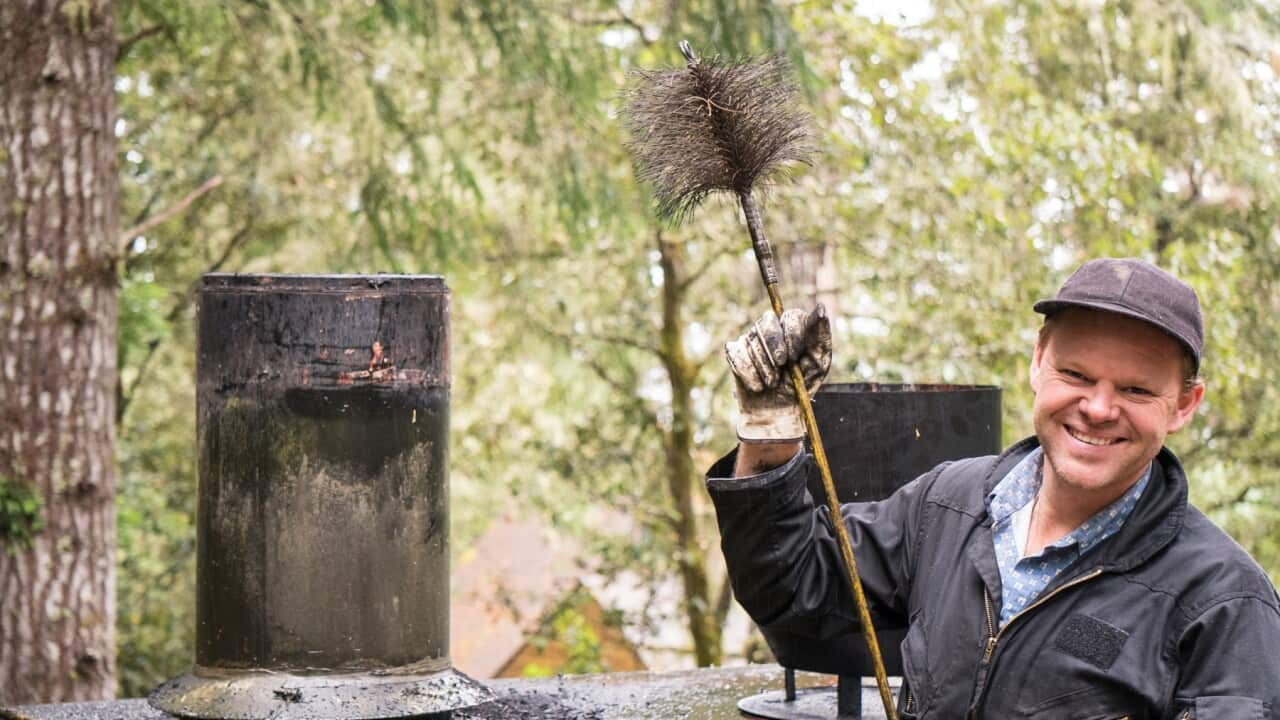Italian
Mentre i costi del carburante crescono, sempre più persone stanno ritornando a forme di riscaldamento tradizionali come i caminetti a legna, ma anche se bruciare legno può essere più economico e rinnovabile, ha un grande costo ambientale.
Nel paesino nello Oxfordshire di Jemma Smith non c’è un fornitore di gas, per cui uscire a fare legna è una routine a cui è abituata.
Il suo riscaldamento centrale si basa sul consumo di petrolio, ma è al momento troppo caro.
Per ciò, piuttosto che bruciare i suoi risparmi, la signora Smith fa affidamento sui tronchi dal giardino.
Inoltre lavora da casa, per cui ha necessità d’inverno di riscaldare il suo edificio durante il giorno, e ora ha concentrato la sua area di lavoro in una stanza con una stufa a legna.
"I work from home and with the price of oil going up in our village, I've decided that it makes more sense to to sit in this room and to work on my laptop, but also to to decrease the heating a little bit."
Per bruciare legname in sicurezza ha chiamato uno spazzacamino per pulire la canna fumaria ed è stata fortunata a trovarne uno.
Secondo il presidente dell’Associazione Nazionale degli Spazzacamini del Regno Unito Martin Glynn, c’è una carenza nazionale nel numero di persone qualificate per il lavoro.
La sua associazione ha riportato l’aumento del 50 per cento nelle chiamate da persone che cambiano verso combustibili fossili per via del costo del gas, petrolio ed elettricità, e molti spazzacamino professionisti sono prenotati fino alla prossima primavera.
Glynn ha dichiarato che era da decenni che la richiesta di spazzacamini non era così alta.
"Not in the last 25, 30 years. The demand for chimney sweeping is the most busiest I've seen. People are in fear with the problems we've got with the Ukraine. It's generated very high energy cost."
Ma il ritorno a camini e stufe accese significa anche il ritorno ai problemi ambientali che causano.
Ci possono infatti essere benefici economici nel riscaldare alcune stanze con un camino acceso ed il legno è una fonte rinnovabile.
Ma bruciare legno produce particelle minuscule che creano l’inquinamento dell’aria, specialmente se i tronchi non sono completamente asciutti.
Ricercatori ambientali come il dottor Gary Fuller dell’Imperial College di Londra sostengono che le stufe sono già responsabili per molta aria inquinata.
"Already we know that around 8 per cent of UK homes are burning solid fuel to keep warm. Together, they're producing more air pollution than all of the cars on the UK's roads and we're fearing that that may become worse this winter as people turn to solid fuel burning just to try to keep warm."
Il governo inglese si sta muovendo per eliminare gradualmente la vendita di legno bagnato e carbone domestico, ma la scelta tra i costi ambientali ed il bisogno di riscaldare le case è un dilemma che molte famiglie si troveranno ad affrontare.
English
As fuel costs rise, increasing numbers of people are returning to traditional forms of heating like log fires, but whilst burning wood may be cheaper and is renewable, it has a huge environmental cost.
In Jemma Smith's Oxfordshire village there isn't a gas supply so a trip out to pick up wood is a routine she's used to.
Her central heating relies on burning oil, but that's currently too expensive.
So rather than burning through her savings, Ms Smith's relying on logs from the garden.
She works from home so she needs to heat her building during the day in winter, now focussing her workspace in a room with a wood burner.
"I work from home and with the price of oil going up in our village, I've decided that it makes more sense to to sit in this room and to work on my laptop, but also to to decrease the heating a little bit."
To burn wood safely she's brought in a sweep to clean the flue, and she's been fortunate to find one.
According to Martin Glynn the President of Britain's National Association of Chimney Sweeps there is a nationwide shortage in the number of people trained to do the job.
His association reports a 50 per cent increase in call outs from people changing to solid fuel because of the cost of gas, oil and electricity and most professional sweepers are booked up until next spring.
Mr Glynn says it's been decades since the demand for sweeps was this high.
"Not in the last 25, 30 years. The demand for chimney sweeping is the most busiest I've seen. People are in fear with the problems we've got with the Ukraine. It's generated very high energy cost."
But a return to open fires and stoves also means a return to the environmental problems they produce.
There may be economic benefits to heating certain rooms with an open fire and wood is a renewable source.
However burning wood produces small particles which create air pollution, especially if the logs aren't fully dried.
Environmental researchers like Dr Gary Fuller from Imperial College London say burners are already responsible for a lot of polluted air.
"Already we know that around 8 per cent of UK homes are burning solid fuel to keep warm. Together, they're producing more air pollution than all of the cars on the UK's roads and we're fearing that that may become worse this winter as people turn to solid fuel burning just to try to keep warm."
The British government is moving to phase out the sale of wet wood and domestic coal, but the choice between environmental costs and the need to heat homes is a dilemma many households will face.
Report by SBS News




